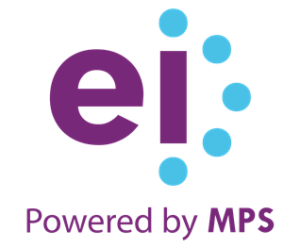How To Create An L&D Strategy That Helps You Grow
Learning and Development (L&D) is a strategic approach to foster organizational growth. A healthy learning and performance ecosystem fuels continuous learning and engages employees, which drives employee development and org-wide growth in several ways. It reduces time to proficiency, helps employees collaborate more effectively while learning from each other, and changes an organization's culture to one of continuous learning. Brandon Hall Group's research concluded that linking learning to performance typically improves the latter 95% of the time. There's also a link between an engagement-centric L&D strategy and the attraction and retention of top talent.
Developing An Employee Engagement Strategy
Crafting an effective employee engagement L&D strategy is critical to fostering a culture of continuous learning and development, which drives organizational advancement. Retaining top-tier talent is indispensable for preserving institutional knowledge and staying competitive within the industry. By meticulously designing and implementing engaging career development initiatives, Learning and Development plays a fundamental role in nurturing employee development and organizational growth while ensuring employee loyalty. Research indicates that organizations offering substantial career development prospects witness a remarkable 34% increase in retention rates, leading to enhanced productivity across the board.
Here are some key principles for formulating a robust employee engagement strategy:
-
Embrace A Learner-Centric Approach
Ditch the one-size-fits-all mentality when it comes to talent management and employee development. Instead, when crafting an L&D strategy, focus on a learner-centered design approach. Engage with employees first, grasping their distinct needs, and then tailor learning content and delivery methods accordingly. Emphasize customization, ensuring that learning solutions resonate with individual learning preferences and requirements.
-
Foster Inspiring Talent Development
Encourage continuous skills enhancement throughout the employees' journey within the organization. Provide diverse growth opportunities, ranging from onboarding processes to promotions, and from upskilling initiatives to reskilling programs. Facilitate skill acquisition through training sessions, mentorship programs, and coaching sessions.
-
Establish A Culture Of Continuous Learning
Cultivate a learning environment that allows employees to evolve at an individual pace. Such an L&D strategy will foster a continuous learning ecosystem that not only enhances engagement but also boosts productivity and retention. By promoting ongoing learning, organizations witness heightened job satisfaction, better loyalty to brands and corporate values, improved performance, and expanded career prospects for the workforce.
-
Driving Impactful Upskilling And Reskilling
Prioritize the upskilling and reskilling of employees. This strategic investment aids in retaining top talent, reducing attrition rates, and preparing the workforce for future challenges. Empower the workforce with the skills necessary to navigate evolving landscapes, ensuring they are well equipped to tackle emerging personal and organizational growth opportunities.
-
Targeting Diversity And Inclusion Strategy
Focus on diversity and inclusion initiatives. Cultivate a workplace culture built on respect, inclusivity, and equity. Develop a robust diversity and inclusion strategy that values individual differences. Encourage diversity in recruitment practices and offer training sessions on embracing diversity and fostering inclusivity in the workplace.
-
Plan For Sustainable Growth
Look beyond standard Learning and Development practices. To ensure organizational growth, align L&D programs with overarching business goals, adapt to industry shifts, and proactively address attrition concerns. Regularly assess the efficacy of programs, identify gaps, and develop customized training initiatives tailored to meet the specific needs of employees.
By making these principles a core part of the L&D strategy, companies will enhance employee engagement and fortify the workforce. But these strategies will also position businesses for sustained organizational growth by ensuring they are well prepared to thrive in an ever-changing business landscape.
Building A Learning Culture
Creating a culture of continuous learning delivers real growth and prosperity for individuals and the organization. Studies have found that organizations with an L&D strategy that fosters a broad-based learning culture enjoy a tremendous competitive advantage over peers. Researchers found that a sound learning culture leads to 24% higher margins. Formalized training and learning ecosystems also result in the company earning 218% higher income per employee compared to organizations without an embedded learning culture.
So, how can businesses partner with L&D to drive individual and organizational growth? Well, here are 4 strategies to foster a vibrant learning culture within the organization.
1. Evaluate The Existing Learning Environment
Take a close look at the current learning culture. Identify the gaps that exist and set clear objectives aligned with the business goals. Evaluate past successes and failures to gain valuable insights.
2. Educate Stakeholders About The Learning Culture
Engage stakeholders in understanding what a learning culture means for the organization. Clearly articulate the benefits of everyone working collaboratively towards a shared mission. Cultivate a sense of purpose and unity among all stakeholders.
3. Promote A Growth Mindset
As part of the L&D strategy, embrace the concept of a growth mindset, emphasizing the importance of continuous development. Encourage forward-thinking attitudes that are essential for organizational expansion. Foster a culture where everyone values adaptability and learning from past experiences.
4. Enhance The Learning Experience
- Increase learner participation: Establish a learning governance structure involving learners from various business units. Gather insights and opinions, incorporating these into the learning culture initiative. Engaging and involving employees actively fosters a sense of ownership and commitment.
- Facilitate cross-functional collaboration: Foster collaboration between different departments. Organize regular meetings for innovation showcases, providing updates on business progress. Discuss learning and talent initiatives, ensuring they align seamlessly with organizational objectives. Identify and empower champions within the organization to disseminate this knowledge effectively.
- Deepen proficiency in products or services: Strengthen employees' expertise in products and services. Provide in-depth case studies that illustrate real-world applications. This practical approach equips employees with the knowledge to apply skills effectively. By enhancing understanding, individuals are empowered to confidently address real challenges and pursue business goals more strategically.
Implementing these strategies will not only shape a robust learning culture within the organization but also foster an environment that embraces and celebrates continuous learning and growth—both for individuals and the organization.
Final Thoughts
Establishing strong connections between learning, talent development, and performance is a crucial part of a successful L&D strategy. Aligning these areas strategically leads to positive, measurable outcomes. Emphasizing employee development and organizational growth enhances productivity, a vital aspect for businesses to thrive.
Read More:
- Research Brief: The Importance of Emotional Intelligence in the Age of AI [eBook]
- AI in Training – How Artificial Intelligence is Transforming the Learning Technology Landscape
- How to Design and Develop Engaging Learning Programs Using Learning Technology
- Modernizing L&D – Technology Trends to Help Design, Develop, and Deliver Impactful Learning Programs
- AI in eLearning – How Natural Language Processing and Other AI-enabled Solutions Will Transform the Industry
- Why Upskilling and Reskilling Are Critical to Building a Sustainable and Resilient Workforce
- DEI Training Strategies that Will Help You Shift Mindsets, Overcome Biases, and Drive Behavior Change

